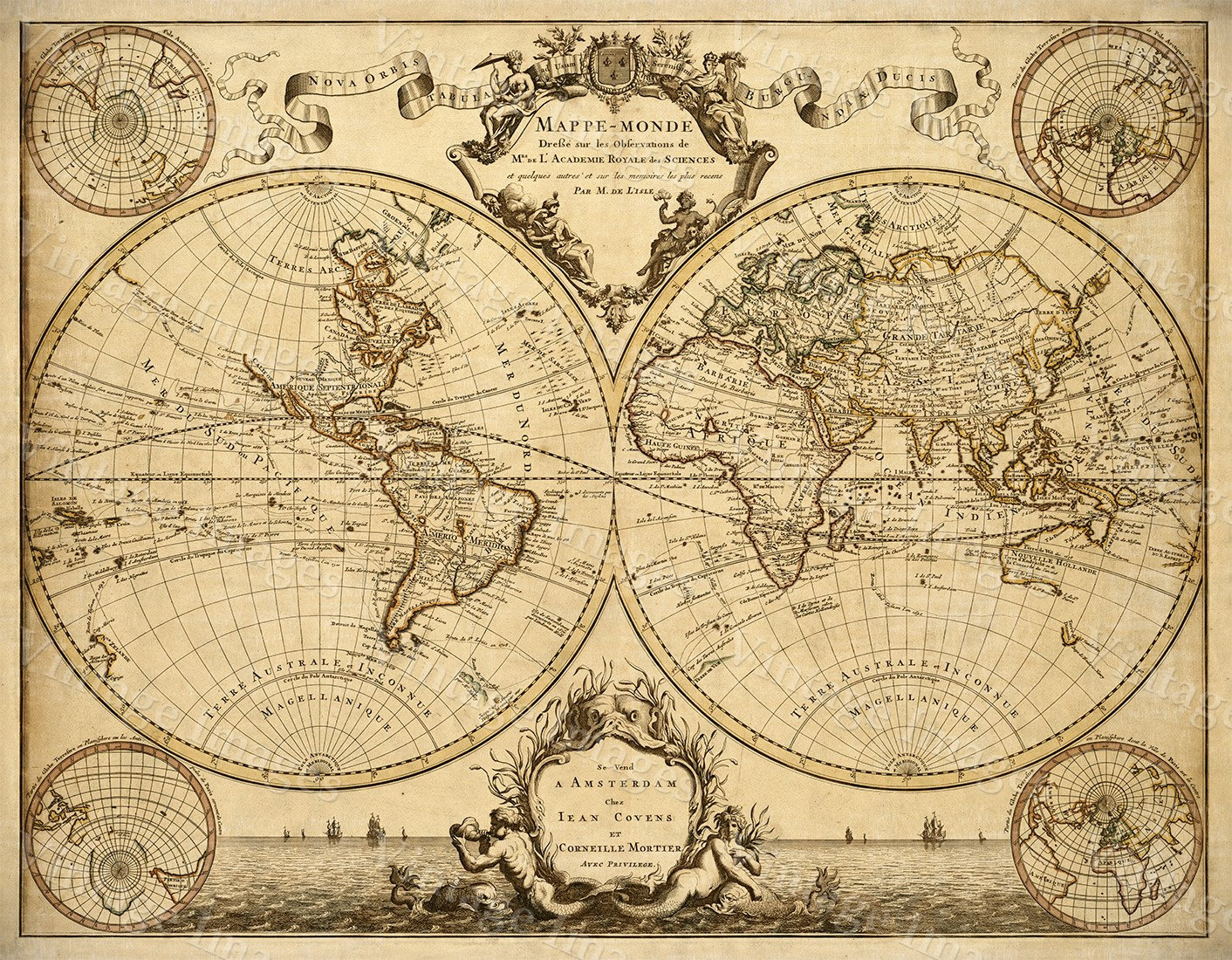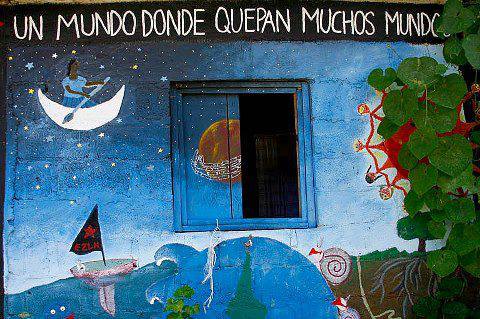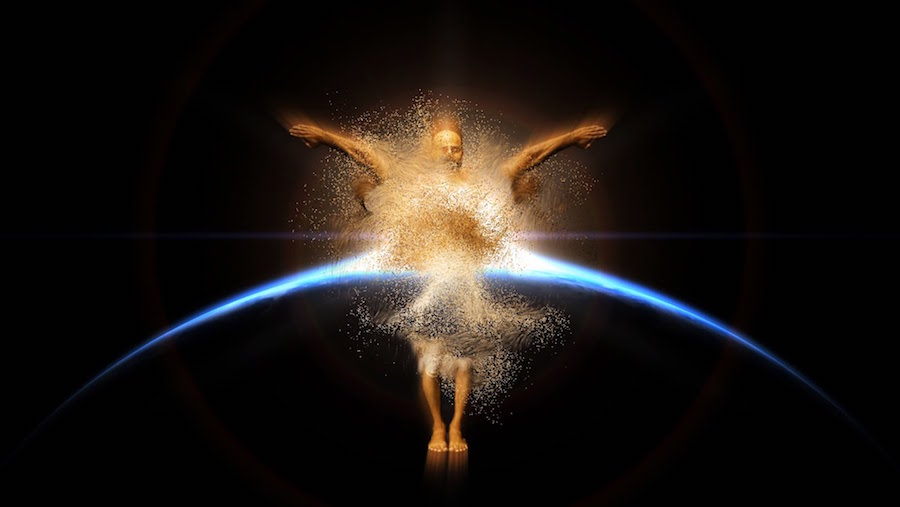Seeing With New Eyes
Epistemologies of the South

I recently had a profound conversation with someone who has been studying with Martin Prechtel through Bolad's Kitchen. We were discussing social justice and he said, “We are constantly struggling with the colonialist imperialist mentality in each of us, and learning to decolonize our own minds to make space for our inner indigenous spirit to return.” After this encounter, those words stayed with me and I was reminded of Arturo Escobar’s, “Thinking-feeling with the Earth: Territorial Struggles and the Ontological Dimension of the Epistemologies of the South”. I am very fascinated by the topic of narratives and the impact they have. Escobar’s work speaks directly to the cultural narrative that pervades modernity today. The “One-World-world” as he calls it is a narrative that has become pervasive in the world. For me, the most profound takeaway from this piece was the concept of the (OWW) “One-World world” view in contrast the “Epistemologies of the South.” The OWW perspective dominates in many areas of modern life, as well as the recesses and subconscious areas of our collective minds, it could be called as my friend named it, the colonialist imperialist view.
In Escobar’s piece the OWW is defined as Eurocentric ontologies and epistemologies. He writes, “Ontologically speaking, one may say that the crisis is the crisis of a particular world or set of world-making practices, the world that we usually refer to as the dominant form of Euro-modernity (capitalist, rationalist, liberal, secular, patriarchal, white, or what have you).” The OWW is the dominant form of ontological relation in modern societies and between them and other ontologies. Escobar cites the OWW as the primary cause of most of the issues facing our world today. “The crisis of the Western modelo civilizatorio is invoked by many movements as the underlying cause of the current crisis of climate, energy, poverty, and meaning.” (Escobar, 26) The solution as he sees it is what he defines as ‘Epistemologies of the South,’ ontologies and knowledge systems of the ‘Global South’ that seek to represent the diversity of the world, versus just one world view. An ‘Epistemology of the South’ that struck me was Buen Vivir the South America concept of “(good living, or collective wellbeing according to culturally-appropriate ways) and the rights of Nature.” (Escobar, 25) Or, the living principle terms sentipensar and sentipensamiento of communities of Colombia’s Caribbean coast which, “…imply the art of living based on thinking with both heart and mind.” These perspectives on existence call for social justice and harmony with the earth. Another way to understand the ‘Epistemologies of the South’ is through a new word I am just being introduced to through Escobar, the “pluriverse” which is the opposite of the OWW. Escobar writes,
“The ‘pluriverse’ is a way of looking at reality that contrasts with the OWW assumption that there is a single reality to which there correspond multiple cultures, perspectives, or subjective representations. For the pluriverse proposal, there are multiple reals, yet it is not intended to ‘correct’ the view on a single real on the grounds of being a truer account of ‘reality.’” (Escobar, 22)
Another example of the pluriverse is the Zapatista dictum:
"Un mundo donde quepan muchos mundos"
A world where many worlds fit

In the realm of Western epistemologies the “God-trick” as described by the distinguished feminist scholar Donna Haraway is another way in which the OWW is created and perpetuated. The “God-Trick” is the claimed objective perspective on "real" life by western sciences. This objectivity is appearing to see everything from nowhere in particular, like an omnipotent omnipresent God and therefore represents a higher truth or perspective of reality. (Haraway) As Escobar states, “Although taken as the common sense understanding of “the way things are,” the One-World world is the result of particular practices and historical choices.” (Escobar, 21) Part of why the OWW maintains dominance is because it utilizes science and Western thought which fall into the realm of objective epistemologies and therefore “God-Trick” the world into the OWW. These views are only furthered through establishments like governments, corporations, universities, and religions.
The most profound aspect of Escobar’s work is the way that he ties real life issues back to ontological ways of seeing reality. “These trends –broadly encompassed within a field that we will call “political ontology”—stem from the proposition that many contemporary struggles for the defense of territories and difference are best understood as ontological struggles.” (Escobar, 13) This got my mind ticking, as struggles here are seen not only as very real battles over territory, but as the deeper ontological battle beginning in the mind. Therefore, the root of the issue is the mind that is governing the world.
Many indigenous traditions view knowledge, property, and plants as something communal, to be shared for the benefit of all. In contrast, Western capitalistic understandings of property try to privatize everything in order to profit. This is an example of the all too real battlefield that represents the more subliminal conflicting ontologies of the OWW with the pluriverse.
Life within the OWW perspective is often defined in binary terms. Binary views of right and wrong, good and evil. These help to maintain systems of hierarchy, easy labeling contributes to the notions of an ‘other’ that lead to segregation, oppression and control. However, life in reality is a spectrum and highly variable. I see more clearly the extent to which only one story is being told in the OWW where many stories ought to be. I am also coming to deeply acknowledge in myself the residue of the OWW reality. There are many unconscious layers of conditioning I am uncovering in what I believe is “normal,” when in fact it is not. I have grown up in a world full of fabricated “norms.” What is normalized becomes a powerful dictator for what is considered, right, wrong, good, bad, and even whom is considered to be human. As awareness continues to be brought to light through countless movements, protests, activism, education and art, I see a ‘re-worlding’ taking place. This is the OWW ontology shifting into the pluriverse, streching and making space for many forms. From the way that we speak, to the stories that are being told the collective narrative is slowly changing.

Works Cited
Escobar, Arturo.“Thinking-feeling with the Earth: Territorial Struggles and the Ontological Dimension of the Epistemologies of the South”. AIBR. Revista de Antropología Iberoamericana www.aibr.org Volume 11, Issue 1, January - April 2016. Pages 11 – 32
Haraway, Donna. “Situated Knowledges: The Science Question in Feminism and the Privilege of Partial Perspective,” in Feminist Studies, Vol. 14, No. 3. 1988.
